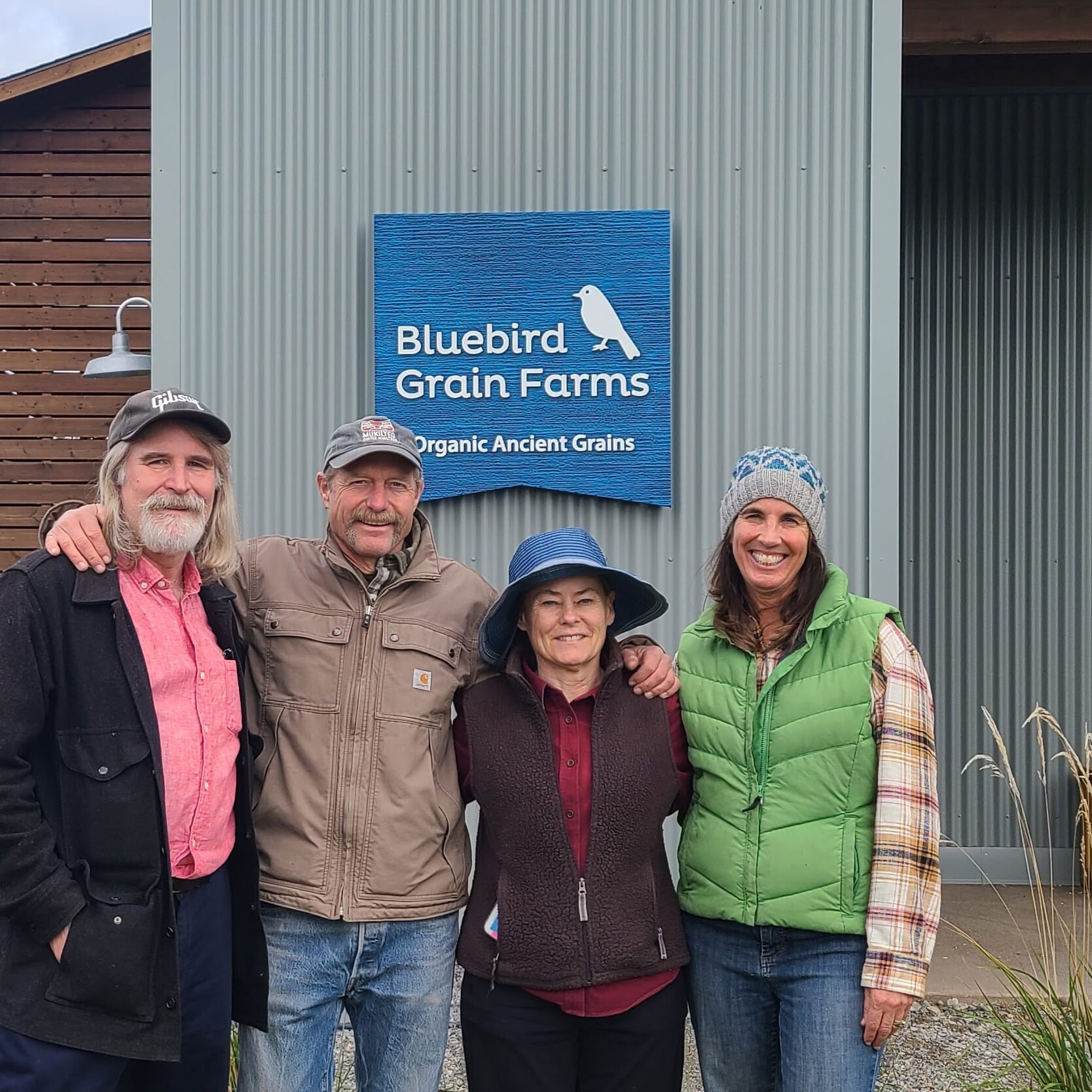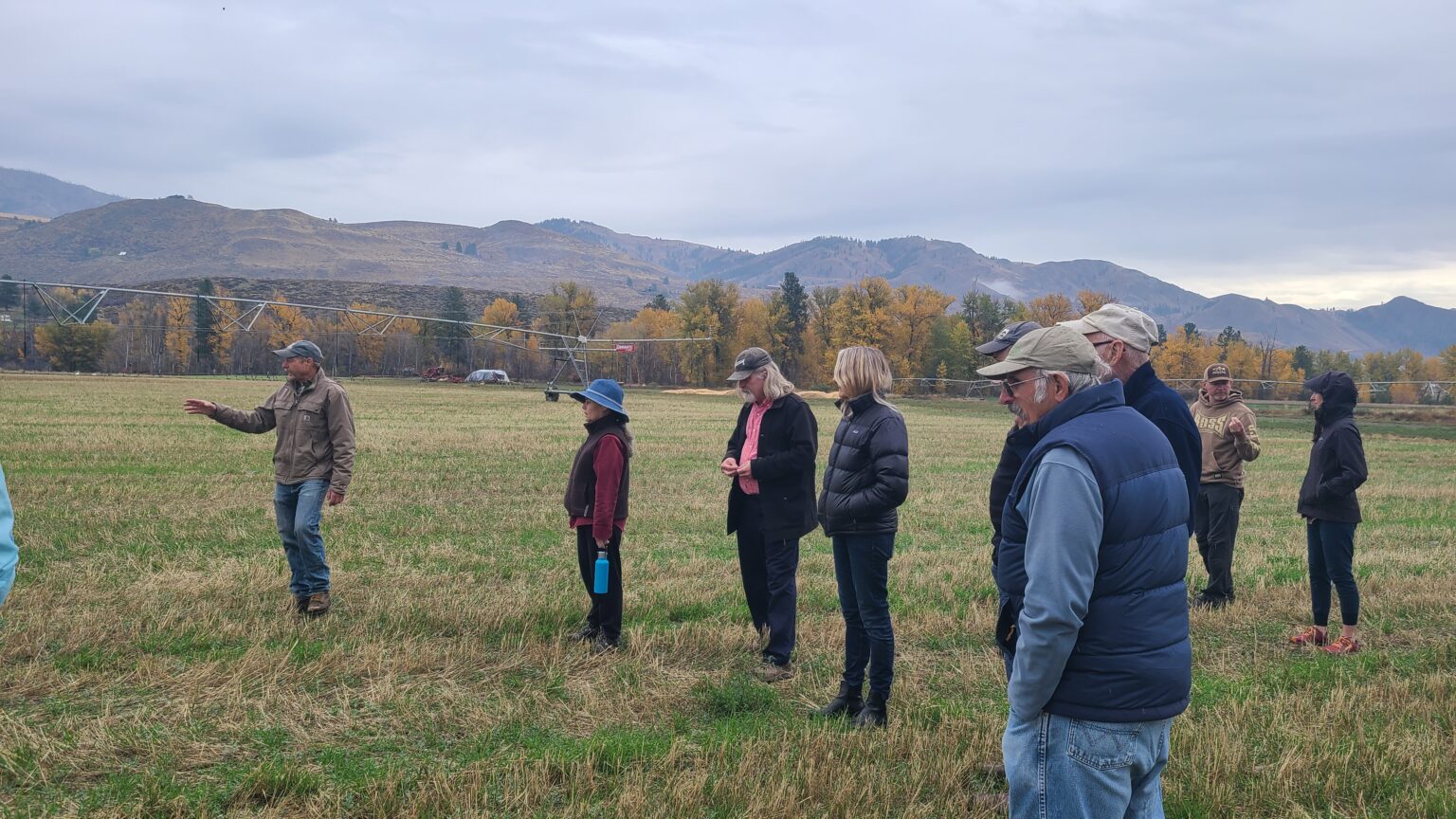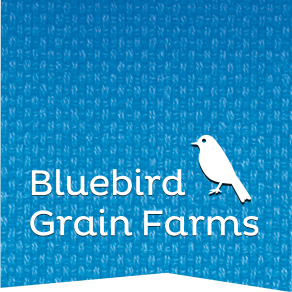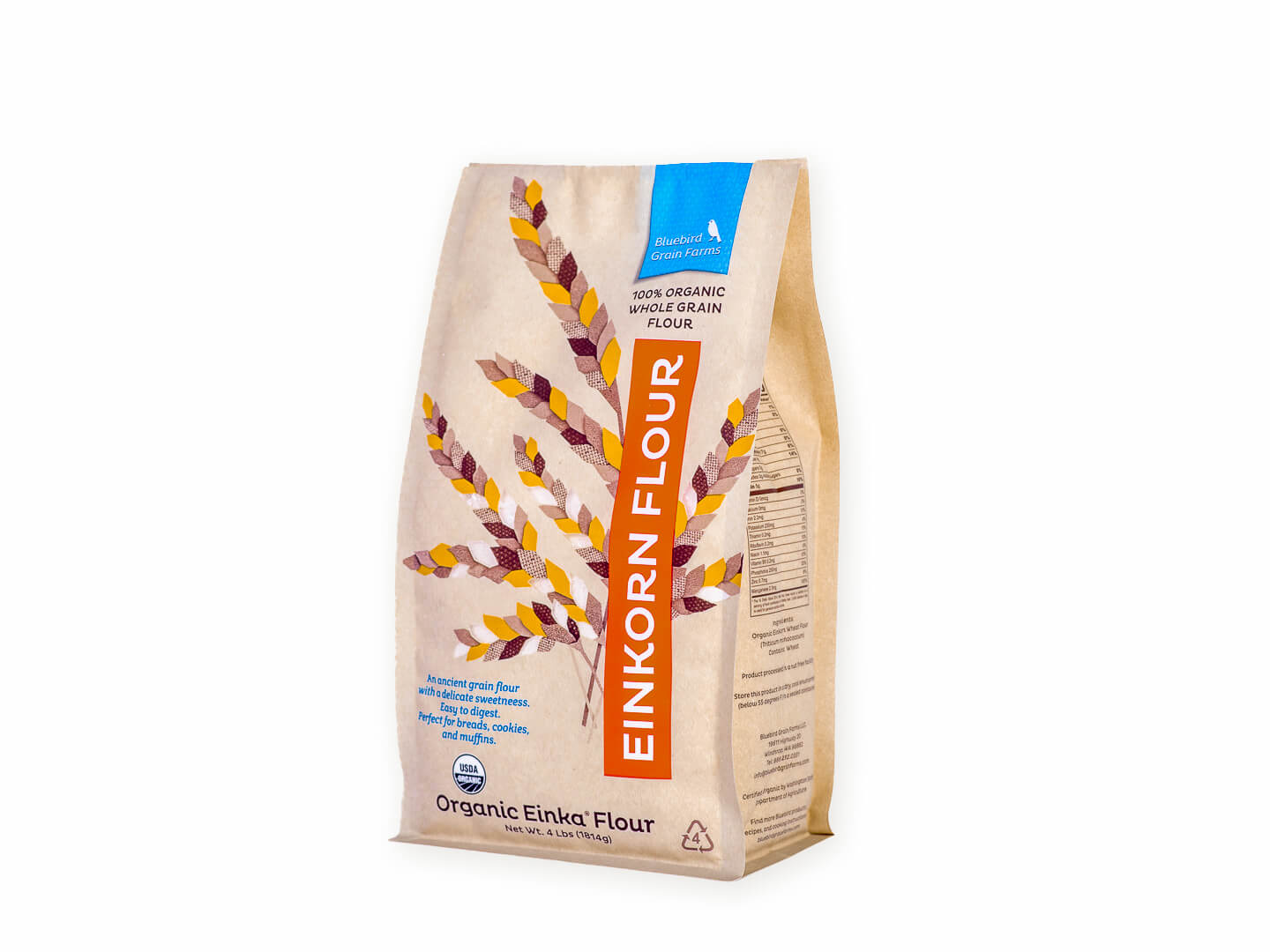
Quiet, crisp and clear is how October went out. More classic fall, days I can’t recall. Of all the months, perhaps October is the month with the most change. This year October began mild and sunny, with some warm rains mixed in as the month progressed. Then on the 25th we had our first snow. Then as the final week built toward the Full Hunter’s Moon, temperatures dropped to nighttime teens and the days barely reached 40. Love it!
With this swing so came the goings and comings of birds. We said goodbye to the bluebirds and meadowlarks and most recently the robins. And hello to the chickadees, nuthatches and nighttime owls. The murmuring of cloud-hidden geese could be heard as they pushed on their ageless, southbound journey. Coyotes, too, joined this cacophony of wild sounds each moonlit night. What beautiful, still land these voices remind us of – remind us of our good fortune to be able to call this place Home.
And grow peas! Remember last month’s peas – how we just needed to give them a chance! Alas, up they came and along the rows they run! The past four 15 degree nights have tested the little buggers endurance and strength. So far, they seem to be fine. Some of the southbound geese sure enjoyed them, including a pair of snow geese. Canada geese are grazers and just graze off the pea -tops and don’t destroy the crops. Snowgeese, however, will actually rip and tear out the plants so we were not sorry to see them move on!
Here comes November… with its “silvery mist and sodden lane”. Indeed. A cold, steady rain falls outside this morning as the wood stove clicks away inside and a glowing warmth helps me type these notes. November is the month I love even more than October; the bare and hollow month is not lost on me. These rains are just perfect for our soils. The late fall moisture sets the stage for winter as I’ve mentioned so many times before. These lovely rains soften and open our ground so that any snow will perforate straight in come spring. Already, I’m feeling good about next Spring’s moisture.
Right now, however, we are happy to have most things put away for winter. Our granaries are packed full of the yummy summer grains, and the pace of orders and our processing kicked up a couple notches last month. Dan has been milling great flours here each week, and begins most every week with a large volume of our einkorn flour. You folks can’t seem to get enough! He’s doing a great job and it likely is realized in your baking. Spelt, einkorn and Sonora flours are flying out the door!
The Washington State grown whole grain einkorn you also see in our lentil/einkorn blend, as well as straight whole grain berries for cooking. As with our emmer and spelt – the other hulled wheats – we de-hull the einkorn in a fashion that does not compromise the kernels themselves, and leaves all the “skin” on and therefore giving you the lovely aroma and taste and nutrition that true whole grains should.
Speaking of food, we had a great weekend last month with David Montgomery and Anne Bikle, authors of “What Your Food Ate” – their most recent book. Our friend and librarian Craig Seasholes instigated this collaboration with Bluebird, and good friends Martha Kongsgaard and Peter Goldman hosted David and Anne in their lovely home at Gunn Ranch. Over a hundred folks attended David and Anne’s book discussion at the Winthrop Barn Saturday evening, then several more joined us for a “farm walk” Sunday at our Bluebird home field. In depth but casual conversations flowed as we walked among the winter peas, and ended up in the granary for more talk.
“What Your Food Ate” is very well researched and clearly written and stands on the premise that what your food eats is what you eat, whether it be good or bad. Truth to tell the results, or consequences in many cases of what one chooses to eat, are not all that surprising but equally important. And this health, or lack of, all begins in soil. The good news is, we can grow A LOT of food in this country. Perhaps this is not so good – our government continually chooses to subsidize predominately unhealthy farming practices, thus unhealthy foods.
One fairly simple change that comes to my mind is this: How about we begin giving farmers the financial support for change? No one would lose except, perhaps, the pharmaceutical companies. If our government were to begin subsidizing sustained biology-building farming practices, all equipment manufacturers could still remain in business. As would the seed companies and many of the fertilizer companies, even if they had to shift to selling more compost and plant based nutrients instead of importing mined chemicals from Russia – among other countries – and at escalating costs. Hmmm.
“Sustainable” or “Regenerative Agriculture” is not simply no-till paintings that rely heavily on chemical inputs and herbicides. These same subsidies could shift and be used to buy cover crop seed, more specialized farm equipment, and easier access to the information that already exists for switching systems over to sustainable, regenerative farming systems. Plus, let’s use some of these vast subsidies for continued research on these systems.
What your food eats is what ends up in your apple pie, in your Big ole’ Thanksgiving bird, and in that warm, lovely stuffing. Did I mention the upcoming and favorite holiday of mine? Did I mention I love to eat? I can not wait!
To go with the holidays, Bluebird will be hosting Open Houses Saturday November 25th after Thanksgiving, then again on Saturday December 9th and December 30th. Open House and tour will begin at 10 AM, plan for about an hour farm tour, and this leaves until 2 PM to mingle and for all those who want to put together gift baskets, or purchase any other holiday grain gifts while sipping hot drinks and…eating! Feel free to sign up here if you are interested in attending one of our farm tours. Bring your family and friends!
I look forward to seeing as many of you there as end up making it! Until then gather round, hold hands, and thank Mother Earth for the bounty she continues to give.
Peace,
Farmer Sam


